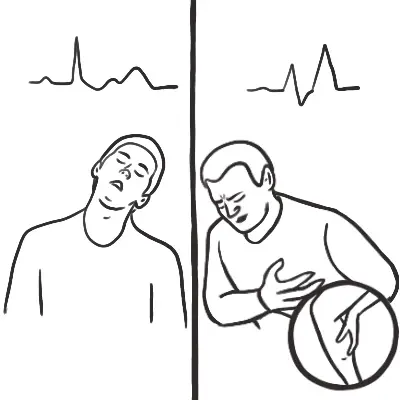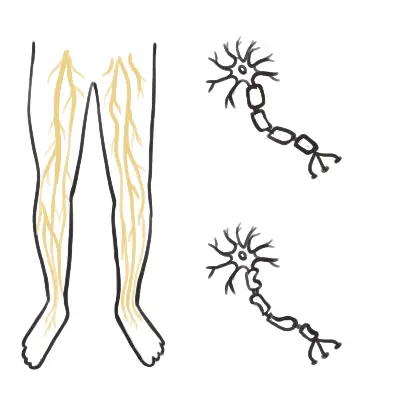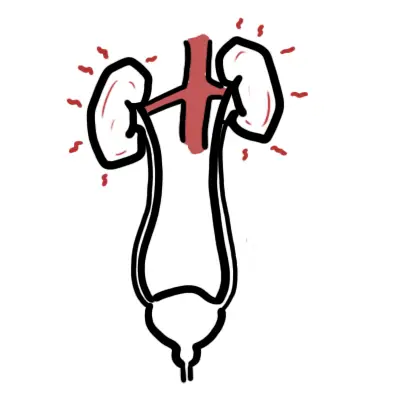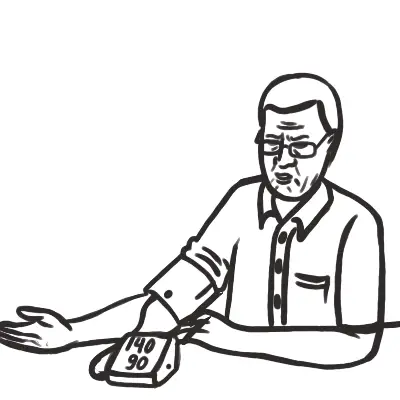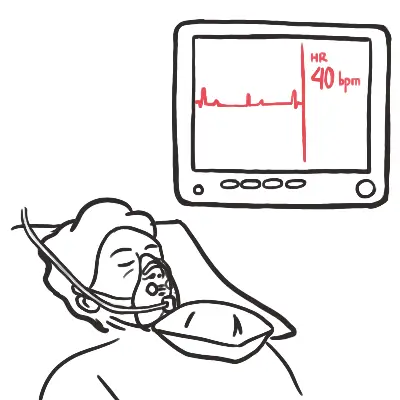Overview
Potassium (K+) is an important ion in the body. K+ is found mainly intracellularly (inside the cells) whereas sodium (Na+) is found extracellularly (outside the cells).
- Serum Potassium: 3.5mmol/L - 5.0mmol/L
- Serum Sodium:
Therefore:
- Hyperkalaemia: >5mmol/L
- Hypokalaemia: <3.5mmol/L
As the pH rises , K+ is shifted intracellularly and the serum levels falls; conversely when serum pH decreases, intracellular K+ shits extracellularly into the vascular space and so the serum level increases. This is because H+ and K+ are both positive and it is important to have normal +ions levels in the serum to maintain a gradient across the cell membrane to maintain the excitability of nerve and muscle cells, including the myocardium.
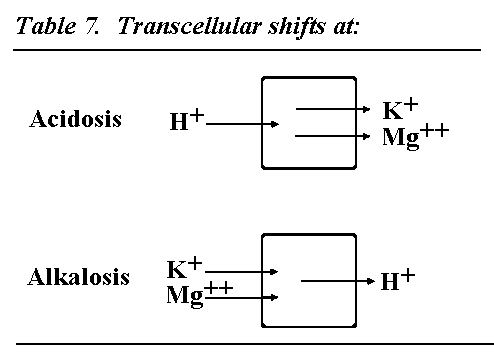
Causes of Hyperkalaemia
- Excessive intake
- Increased production
- Haemolysis
- Rhabdomyolysis
- Intense physical activity
- Burns
- Tumour lysis syndrome
- Shift from intracellular to extracellular fluid
- Acidosis
- Insulin deficiency/resistance
- Medications
- β-blocker
- Suxamethonium
- Digoxin
- Spironolactone
- Hyperkalaemic periodic paralysis
- Decreased excretion
- Renal failure
- Addison's disease
- Medications
- Potassium sparing diuretics
- ACE inhibitors
- NSAIDs
- Trimethoprim, cyclosporin, tacrolimus
Signs and symptoms
- Non-specific
- Generalised muscle weakness
- Respiratory depression
- Ascending paralysis
- Palpitations, Arrhythmia, Cardiac arrest
- ECG CHANGES:
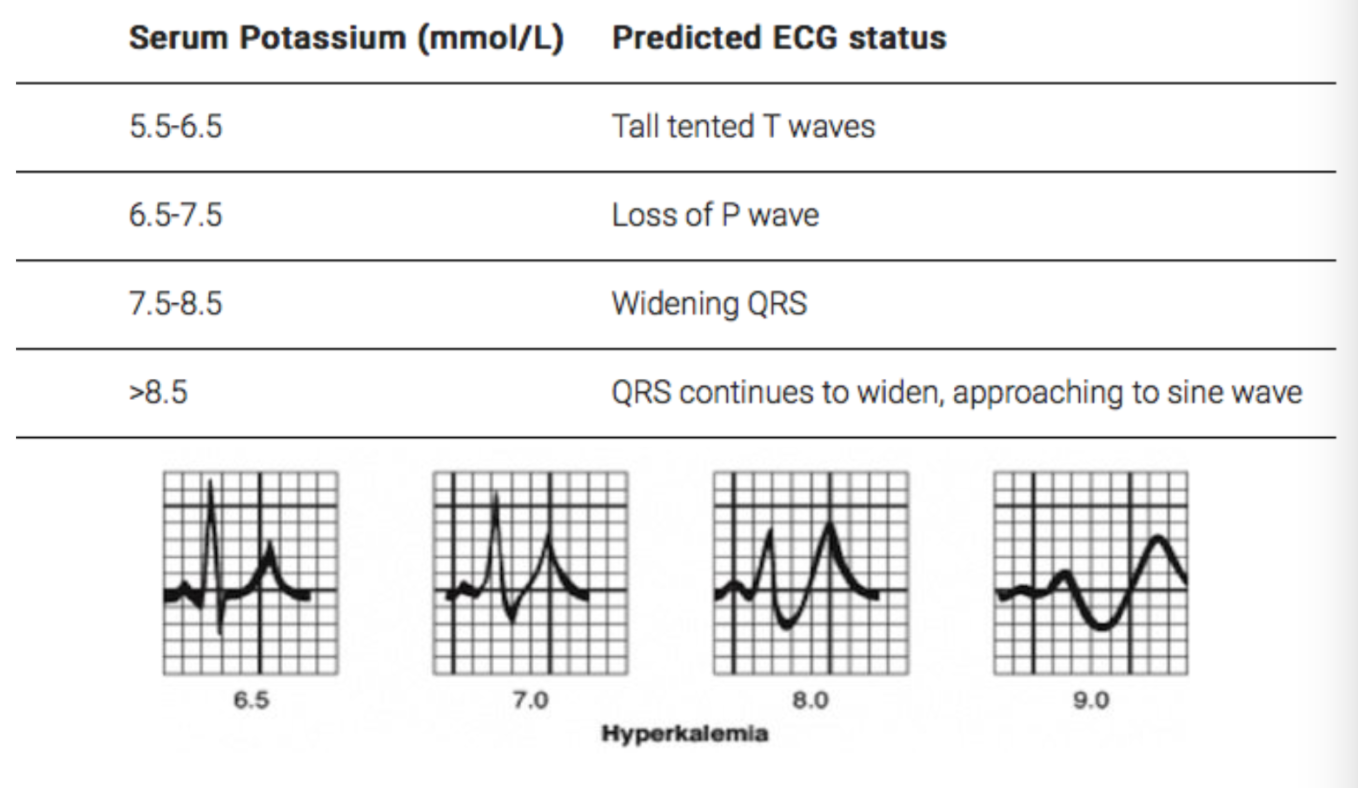
Management
Management - nonpharmacological
- ECG
- ABCD
- Check serum potassium
Management - pharmacological
- IV Frusemide (provided patient normal urine output)
- IV Calcium chloride or Calcium gluconate
- Drive K+ into the cell
- Insulin + Glucose
- Salbutamol
- Sodium bicarbonate - if acidotic
- Monitor serum K+ every hour
- Eliminate K+ from the body
- Calcium Resonium (this is slow)
- Dialysis (last line)
| Pharmacology Calcium Gluconate is a myocardium stabiliser and is cardioprotective. Side effects: Bradycardia, hypotension and peripheral vasodilation. |
| Pharmacology Calcium Resonium is a large insoluble molecule that binds to K+ in the large intestine, where it is excreted in faeces. Side effects: |
| MANAGEMENT OF HYPERKALAEMIA DEPENDING ON SEVERITY | ||
| Mild | Moderate | Severe |
| Calcium Resonium | IV Frusemide | IV Frusemide |
| Calcium Resonium | Calcium gluconate/Calcium chloride | |
| Insulin + Dextrose/N.Saline | Insulin + Dextrose/N.Saline | |
| Salbutamol | Salbutamol | |
Complications of Hyperkalaemia
- Cardiac arrest
- Weakness
- Paraesthesiae
- Decreased reflexes
- Ascending paralysis
Hypokalaemia
Defined as potassium <3.5mmol'L
Signs and symptoms
- Generalised muscle weakness
- Respiratory depression
- Ascending paralysis
- Ileus, constipation
- Palpitations, Arrhythmia, Cardiac arrest
- Nephrogenic diabetes insipidus (characterised by polyuria and polydipsia)
Management
Management - nonpharmacological
- ECG
- ABCD
- Check serum potassium
Management - pharmacological
- Chlorvescent - Given STAT
- Slow K
- Potassium Chloride (KCl) IV given in 10mmol in 100ml of normal saline
- Check serum potassium
ECG findings
- Peaked P waves
- T wave flattening and inversion
- U waves

